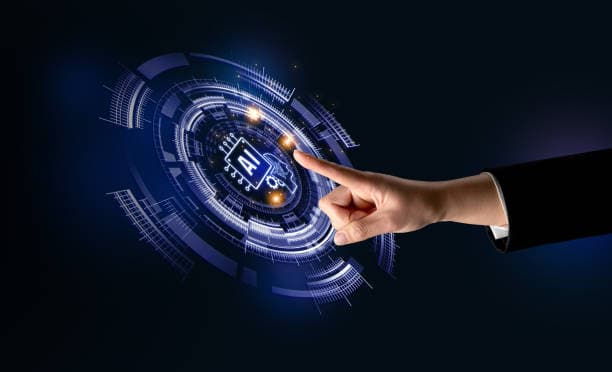The internet, as a global information environment, is undergoing rapid transformation. Over the past decade, we have witnessed a series of technological breakthroughs: the explosive growth of Artificial Intelligence (AI), the spread of blockchain technologies and their associated cryptocurrencies, as well as the active development of decentralized platforms. Together, these factors are shaping new models of economic, social, and cultural interaction among users, corporations, governments, and machine systems. How exactly do AI and cryptocurrencies influence the internet of the future, and what should we prepare for in this new digital landscape?
Artificial Intelligence: A Driving Force in Development and Data Analysis
Machine Learning and Deep Neural Networks
Modern AI is based on machine learning methods and deep neural networks. These technologies enable the analysis of huge data volumes, the identification of hidden patterns, the prediction of future trends, and the optimization of processes. With the help of AI, the internet of the future will provide more accurate recommendations, deliver relevant content, and improve the quality of the informational environment.
Personalization and User Experience
One of the most important advantages of AI is its ability to take into account a user’s context and intentions. Today’s recommendation algorithms are no longer limited to selecting products or movies; in the future, they will anticipate what information, services, or solutions a user might require. The AI-enhanced internet will offer content adapted to users’ interests, mood, and goals. Virtual assistants will not only follow commands but also proactively suggest optimal actions, saving time and resources.
Business Process Automation and E-Commerce
In the business sphere, AI will change approaches to supply chain management, personnel selection, customer behavior analysis, and pricing. It will help forecast demand, optimize logistics, and improve the efficiency of marketing campaigns. As a result, companies can offer more affordable and higher-quality goods and services, while users enjoy an improved brand interaction experience online.
Cryptocurrencies and Decentralization: A New Economic Model for the Network
Blockchain as a Foundation of Trust
If AI can be considered the “brain” of the future internet, then blockchain and cryptocurrencies are its “circulatory system.” Distributed ledger technology (DLT) enables the storage and verification of transaction, asset, and identity data without third-party intermediaries. This creates a transparent, reliable, and fraud-resistant environment. The distributed structure allows participants to interact directly, regardless of their geographical location and legal frameworks.
Smart Contracts and Decentralized Applications (dApps)
Blockchain technology enables the automatic execution of smart contracts, simplifying legal and commercial relationships. Decentralized applications (dApps) operate independently of central servers, remaining resistant to censorship and outages. This also applies to crypto casinos: game results are recorded in an open ledger, and outcomes are determined transparently. Many platforms offer crypto casino no deposit bonuses, allowing new players to start without initial investments and strengthening trust in the platform, thereby stimulating the industry’s growth.
The advantages of this model are evident:
- Automated execution of contractual conditions
- Transparent and verifiable gameplay
- The opportunity to start without initial investments
- Resistance to censorship and technical failures
The development of such solutions gives users a new level of freedom and control over their online experience. In the near future, we will see even more integrations between blockchain, AI, and decentralized platforms, expanding the opportunities for innovation in the internet economy.
New Models of Content Monetization and the Internet Economy
Cryptocurrencies make it possible to create and apply fundamentally new reward and monetization schemes. Users can earn tokens for viewing content, participating in communities, or validating transactions, while authors and developers receive direct compensation from their audience without intermediaries. This approach encourages the emergence of fairer and more open economic ecosystems, where value is not distributed from the top down but formed from the bottom up, through the collective efforts of all participants.
The Synergy of AI and Cryptocurrencies in the Future Internet
Decentralized Data Analytics
AI and blockchain can work closely together, enhancing each other’s benefits. When AI processes distributed data, insights and forecasts become more objective and do not depend on a single point of failure. Data on transactions, user behavior, and resource usage, stored in a distributed network, provides AI with a more reliable and holistic picture, minimizing distortions and manipulation risks.
Resistance to Censorship and Filtering
The combination of AI and blockchain makes the future internet more resilient to censorship, political pressure, and informational manipulation. AI algorithms will recognize attempts at dishonest interference, mark sources of disinformation, and ensure users have access to objective information. Ultimately, we will achieve a more honest, open, and transparent environment for knowledge exchange.
Automation of Global Services and Markets
Imagine a world economy operating in fully automatic mode: AI agents analyze supply and demand, determine fair prices, and smart contracts automatically execute deals. Blockchain guarantees the authenticity of transactions, while cryptocurrencies provide instant and secure payments without banking intermediaries and high fees. Such a scenario will make economic relationships more flexible, accessible, and democratic for participants worldwide.

Ethical and Legal Issues
Regulation and Control
With the widespread adoption of AI and cryptocurrencies, ethical and legal problems will intensify. Governments must develop new legislative frameworks to regulate the use of AI algorithms in decision-making processes and the use of crypto assets. It is crucial to find a balance between innovative development and protecting public interests. Mechanisms for AI model certification, user identification in decentralized networks, and combating illegal activities enabled by cryptocurrencies will be needed.
Privacy and Data Security
Blockchain ensures transparency, but anonymity could be compromised: by combining big data with AI’s capabilities, malicious actors can de-anonymize users. This pushes for advanced encryption algorithms, confidential computing protocols, and technologies that maintain a balance between openness and confidentiality. The goal is to achieve a fair combination of privacy and accessibility of information.
Responsibility and Trust in Algorithms
If AI makes decisions affecting individuals’ rights and freedoms, who bears responsibility in the event of an error or bias? In a decentralized, global-scale network, this question becomes even more urgent. Mechanisms of independent auditing, collective governance, and open algorithm validation are needed to maintain trust in the technological infrastructure.
Possible Development Scenarios
Mass Implementation and Ubiquitous Integration
It is likely that AI will become an integral part of all aspects of internet activity, and cryptocurrencies will be widely and routinely used. Blockchain will be applied for identification, copyright protection, and the verification of digital objects’ authenticity. The internet will transform into a complex ecosystem connecting billions of devices and services, linking users and machines through intelligent algorithms and decentralized networks.
Diversification of Platforms and Competition for Leadership
As AI and blockchain evolve, the number of competing ecosystems and platforms will increase. Countries and corporations will strive to take leading positions by offering their standards and solutions. A “multilateral” internet may emerge—a conglomerate of interconnected but relatively autonomous networks. Users will make choices not only based on technical parameters but also according to cultural, political, and ethical values.
Conclusion
The internet of the future, built on the synergy of AI and cryptocurrencies, promises to be smarter, more decentralized, safer, and economically dynamic. However, the road to this future is paved with complex questions of ethics, legal regulation, and privacy protection.
For the harmonious development of this new digital environment, joint efforts from technology companies, governments, civil society organizations, and expert communities are required. The task comes down to ensuring equal access to the benefits of the digital era, preserving human values, and finding the optimal balance between innovation and societal interests. It is precisely this that will determine what the internet will become for future generations.

